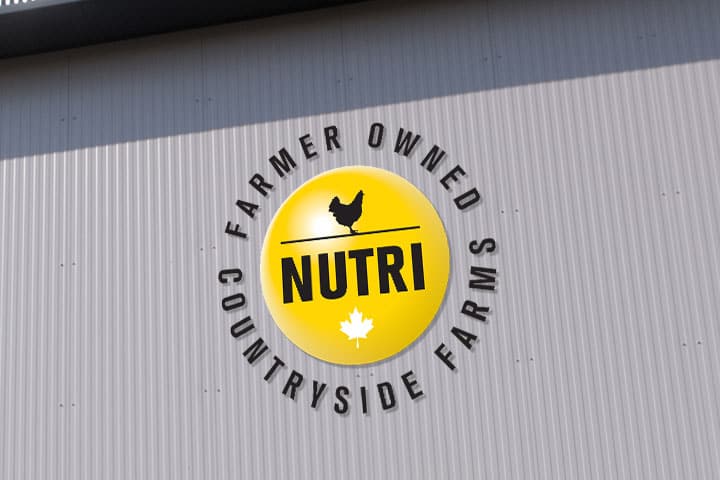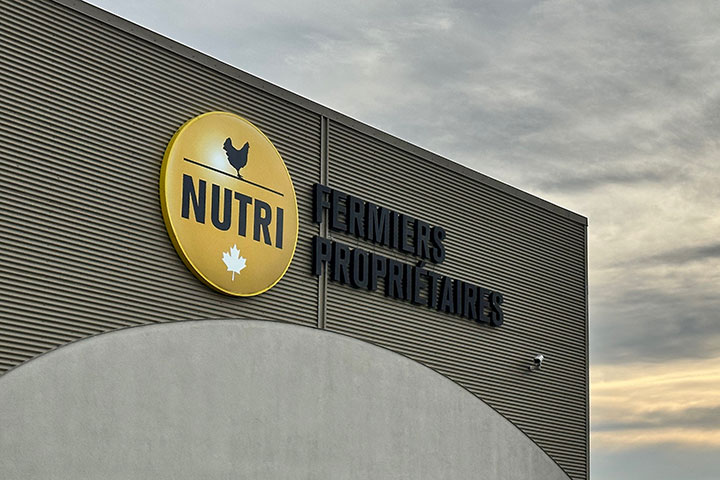After eggs leave the farm, they are transported to a grading station for washing, candling, weighing, and packaging. Grading stations are registered with and inspected by the Canadian Food Inspection Agency.



After eggs leave the farm, they are transported to a grading station for washing, candling, weighing, and packaging. Grading stations are registered with and inspected by the Canadian Food Inspection Agency.
The latest technology available on the poultry market allows for constant monitoring of hen feed consumption, house temperature and many other factors. Monitoring systems are also in place, but producers still heavily rely on daily house checks.
After leaving the farm, the eggs go to the grading station, where they are washed, graded and packed. They are then shipped to different grocery stores in refrigerated trucks. As soon as they arrive in store, the eggs are placed in cold storage or in a refrigerated display case to keep them fresh. Across Canada, eggs go from farm to store in less than a week.
Canadian eggs are produced by more than 1,000 egg-farming families in every province and in the Northwest Territories. No matter where you buy your eggs, you can rest assured that they were produced in your region.
Poultry producers across Canada must adhere to strict standards to ensure egg freshness and quality. They must also demonstrate that all production is local. There are two programs that egg farmers must comply with: the national Animal Care Program and an on-farm food safety program called Start-Clean, Stay-Clean™. These programs set comprehensive and rigorous standards based on the latest research provided by the nation’s leading experts.
Farms are inspected by qualified inspectors, and farmers are committed to caring for their flock in an exemplary manner in order to maintain egg safety and freshness at all times.
Decades of research have confirmed that dietary cholesterol (the cholesterol found in food) has no effect on blood cholesterol levels and does not increase the risk of heart disease. You can eat eggs daily as part of a varied and balanced diet.
Canadian eggs do not contain steroids or hormones. Canadian egg farmers follow the Canadian Food Inspection Agency’s Feed Regulations, which state that the use of added steroids and hormones is prohibited in Canada.
One large egg contains 6 grams of protein and 14 important nutrients such as vitamins A, D and E, folate, iron, and zinc. Because they contain all 9 essential amino acids, eggs are among the few foods considered to be a complete source of protein.
No, quite the opposite. The egg white is 90% water and contains part of the egg’s protein. By eating only the white, you’re depriving yourself of all the nutrients the yolk contains: the other portion of protein, unsaturated fats (including omega 3), vitamins, minerals, antioxidants and other nutrients.
Health Canada, the Canadian Paediatric Society, Dietitians of Canada and the Breastfeeding Committee of Canada recommend introducing whole eggs as early as six months or as soon as your child starts eating solid food. Research shows that introducing whole eggs early in a baby’s diet can help reduce the risk of developing an egg allergy.
 Star Egg
Star Egg
 Counstryside Farms
Counstryside Farms
 Nutri-Œuf
Nutri-Œuf
 Maritime Pride Eggs
Maritime Pride Eggs
 Supreme Egg Products
Supreme Egg Products